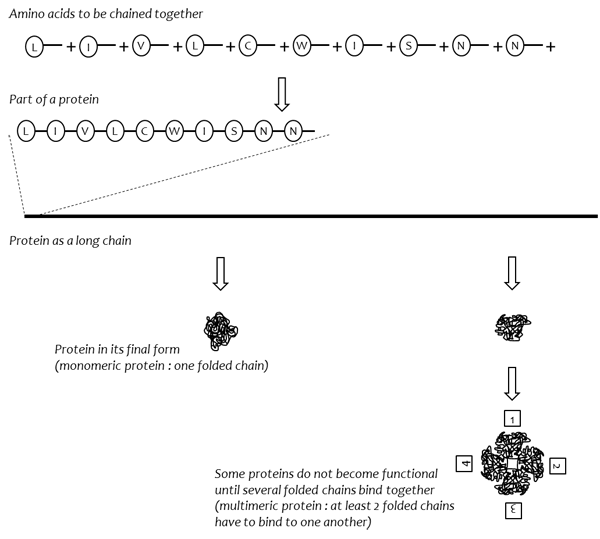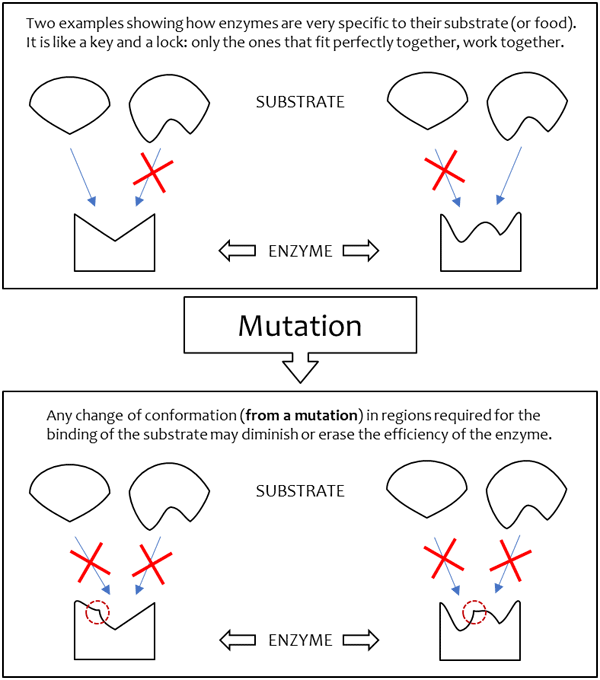Proteins do almost everything in the cells. Importantly, they help to build the other 3 types of molecules that make up a cell (Nucleic acids, carbohydrates, lipids – see “Inside the Cell”).
A protein is a compact 3D structure:
Our cells build their own proteins from scratch by linking up amino-acids into chains . The sequence of the amino-acids in the “chains” is determined by the coded information contained in our genes (see “From Gene to Protein”).
Some proteins can be quite small – insulin is 54 amino-acid long – and some are enormous – titin, a muscle protein, is 34,350 amino-acid long. The FKRP protein is a chain of 495 amino-acids.
Every protein has a specific function that it acquires when it takes its final form.
As mentioned above, proteins are synthesized as a chain of amino-acids. This chain does not remain as a string or an extended linear chain in the cell. It folds onto itself many folds so that a very long string of amino-acids will look like a very compact 3D structure.

Enzymes:
Enzymes are proteins that accelerate the modification of another molecule. They are essential to the life of our cells.
Enzymes are highly specific to the molecule they help modify (called the “substrate”). One enzyme will do one job on one type of molecule. The high specificity to their “substrate” is created when the chain of amino acids folds onto itself in a compact 3D structure to create the perfect complementary shape to its specific substrate.
